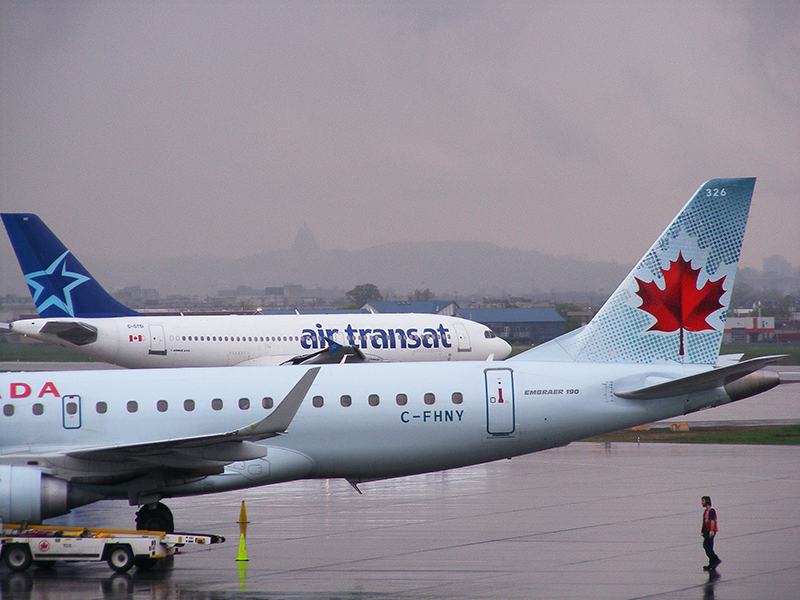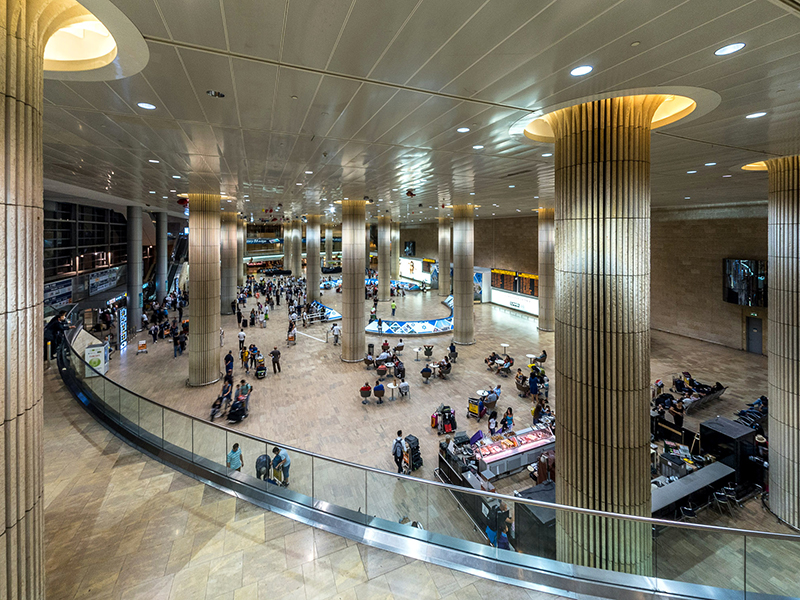Air Transat will not be flying between Montreal and Tel Aviv next season, as it has suspended the service after only two years.
Debbie Cabana, the Montreal-based leisure airline’s marketing director, confirmed the news with The CJN, without providing much detail about the reasons for the change. It would appear that Air Canada has won the battle for a relatively small market.
This year, Air Transat flew twice a week between Montreal and Tel Aviv from May to October, one month more than in its inaugural year.
“We re-evaluate all of our routes each season based on a variety of factors, including supply and demand. Based on this, we decided to suspend our flights to Tel Aviv for the summer of 2019,” she wrote in an email.
READ: CANADIAN AIRLINES WELCOME INCREASED FLIGHTS TO ISRAEL
“Since we are re-evaluating our routes each season, it’s too soon to talk about summer 2020 or the future.”
Cabana did not respond to a question on how business compared from one season to the next.
The launch of Air Transat’s direct, non-stop flight between Montreal and Tel Aviv was announced with much fanfare by the Israeli diplomatic mission in Canada in January 2017. The Israeli government had been trying for some years to persuade Air Transat to fly to Israel, its first destination in the Middle East. Both parties believed there was an untapped tourism market among Quebecers.
The news was hailed by Jewish Montrealers who had not been able to get to Israel so conveniently since El Al stopped flying out of Montreal in the early 2000s.

A month later, Air Canada announced that it would match Air Transat and introduce a Montreal-Tel Aviv route two times a week over the same period. Additionally, it increased the frequency of its Toronto-Tel Aviv service, offering daily flights throughout the year. Air Canada has been flying to Israel since 1995.
The Air Transat launch was ballyhooed as a sign of increased economic and cultural ties between Quebec and Israel, which many said would only grow with the new connection. It followed on then-Montreal mayor Denis Coderre’s trade mission to the Jewish state in November 2016.
The first season seemed to be worthwhile for the two airlines. Both Air Transat and Air Canada welcomed an agreement reached between Canada and Israel this past January that permits more flights between the two countries, up to 19, from 12 per week.
Air Transat announced at the time that it would increase its flights to three per week in 2018 and start earlier, in May, instead of June.
The decision to suspend the route, despite the increase in passenger volume, is unfortunate.
– David Levy
Air Canada matched that again, but Air Transat only ended up running two flights per week last season.
Air Transat was using a 332-seat Airbus, while Air Canada operated a 292-seat model.
There was hope that the competition would bring prices down.
From the outset, Air Transat was underselling its bigger competitor, offering return fares as low as $1,000, taxes and fees included. It also organized holiday packages in Israel, in both French and English.

At the same time, the Israeli Ministry of Tourism kicked off an unprecedented $2-million advertising campaign in Quebec. Asked if business was greater in one direction than the other, Cabana replied, “more Canadians were flying to Israel than Israelis to Canada.”
“We are very grateful that Air Transat launched this flight and enabled thousands of Quebecers and others to travel non-stop to Israel,” stated David Levy, the Israeli consul general for Quebec and the Atlantic provinces.
“The decision to suspend the route, despite the increase in passenger volume, is unfortunate. We hope that commercial circumstances in the future will change and that the airline will come back on its decision.”
Air Transat, which was co-founded by Quebec Premier François Legault in 1986, reported a significant operating loss for the year at the end of its third quarter in September, as well as a reduction in revenue for the quarter.






